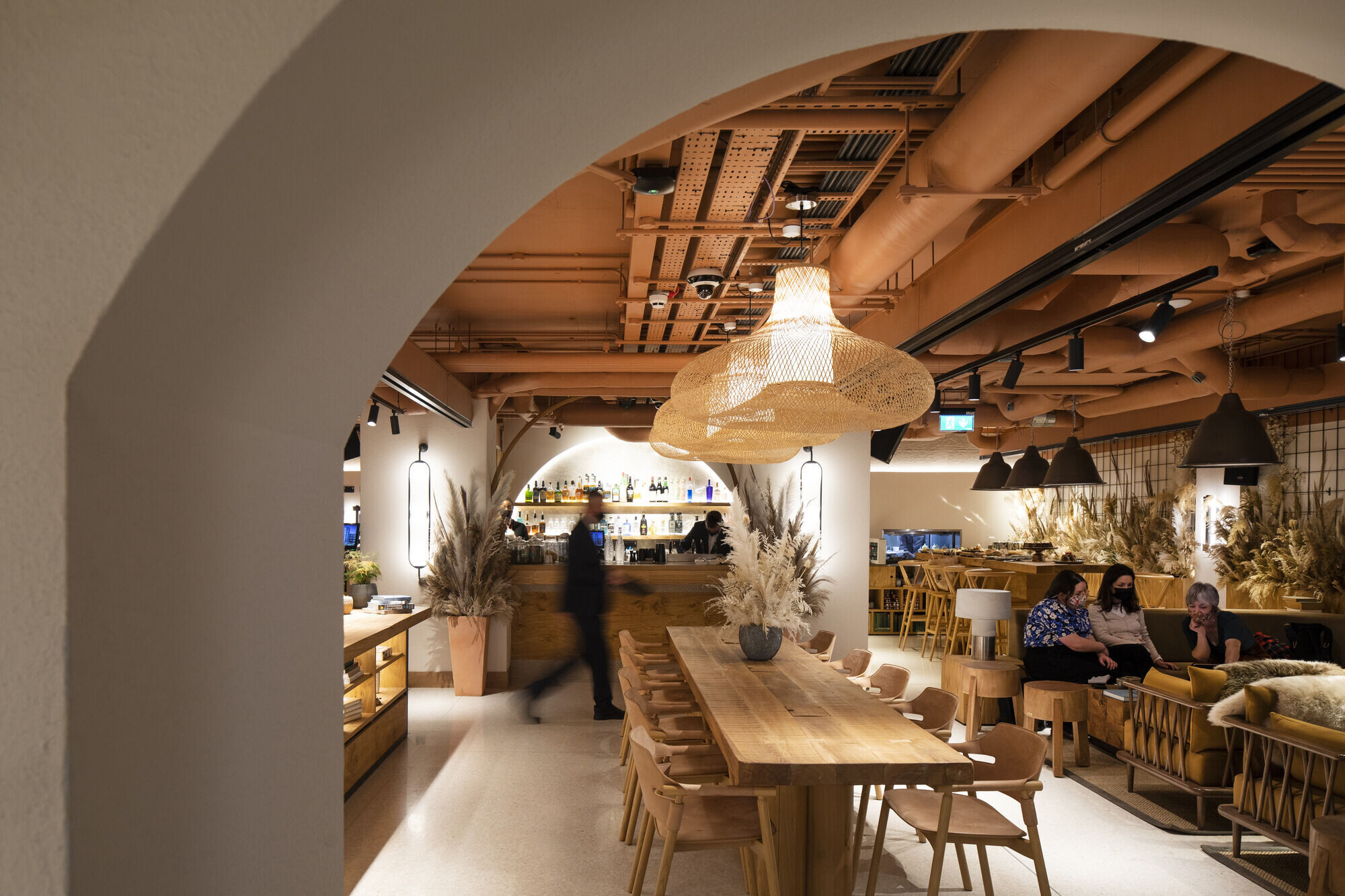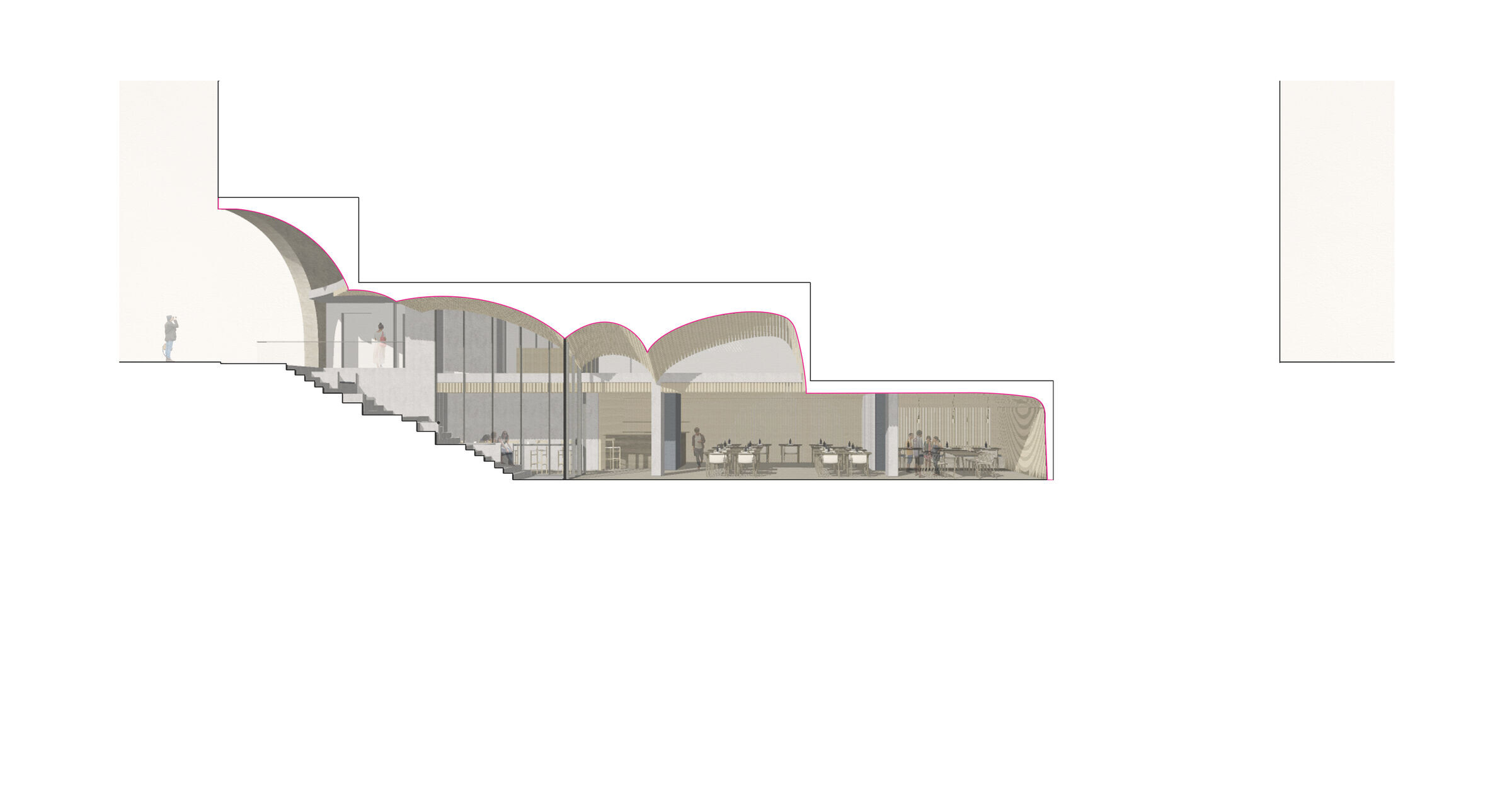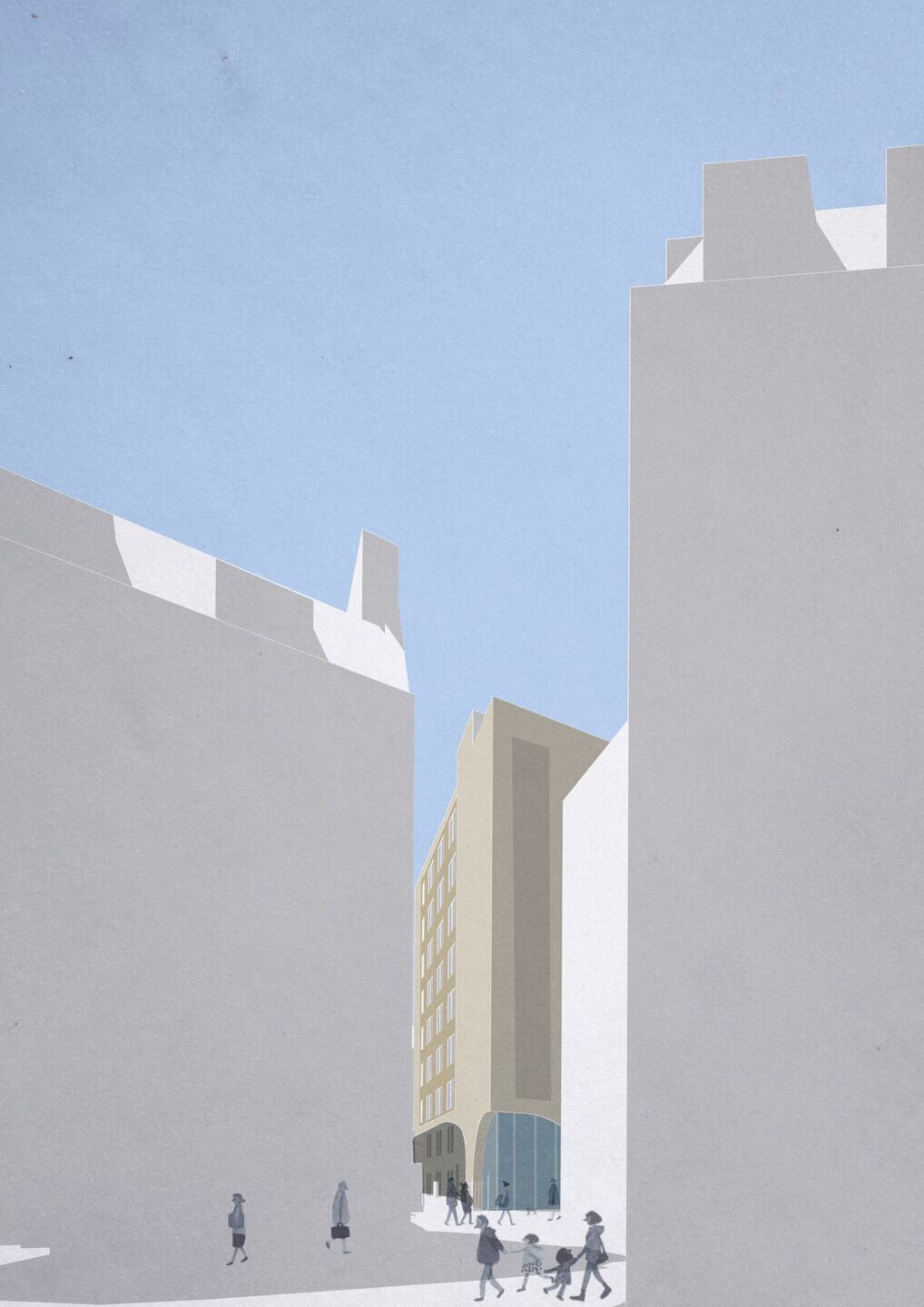The newly opened Wren Urban Nest, based in the heart of Dublin, is a 137-room, nine floor hotel designed and built using the most advanced carbon reduction technologies, making it one of Europe’s most sustainable hotels in a major city centre.
Eliminating the need for fossil fuels, the building uses 100% renewable energy and is the first hotel in Ireland to comply with the World Green Building Council’s definition of ‘Net Zero Operational Carbon’, without having to purchase carbon offsets.

With architectural, civil and structural and mechanical and electrical engineering design from interdisciplinary practice, BDP, the team has taken a number of steps to set the agenda and exceed ‘Net Zero Operational Carbon’ status and to create an overall ethical and sustainable guest experience. The unique design and commitment to sustainability place Wren at the forefront of international hotel innovation.
The design of the hotel focuses on compact luxury and energy efficiency, with small format bedrooms decorated and accessorised with the best contemporary Irish craft, a showcase for Irish design from brand to bed, confidently supported with smart, sustainable technologies.

Director of Moran Hospitality and Hotel Operator, Tracey Moran explains: “The unique architectural design of the hotel is a testament to our wonderful collaborators at BDP. We couldn’t be more excited to have Wren Urban Nest open. We are passionate about the environment and believe in taking little steps towards a better planet. Our guests can expect bags of personality and a bespoke Dublin city experience that does not compromise on luxury while still doing their bit."
Architect director at BDP, Michael Mullen, adds: “The design of the Wren evolved by imagining how guests of the future would engage and contribute to Dublin. We believe that hotels of the future have a responsibility to the host city and have to act to minimise the environmental and social impacts of their guests.

“BDP’s interdisciplinary team of architects and engineers were uniquely placed to design and deliver this first of its kind hotel in Europe. With the spotlight of the world on sustainable practices, we are so proud to be able to present a building that burns no fossil fuels, has zero local pollution and even improves the air quality around it.”
An advanced feature of the bespoke design allows free energy sharing across the hotel. The glazing on this elevation is full height and width, straddling both floors and rooms. The hotel utilises the thermal gains obtained from the path of the sun and heat gained on the east elevation in the mornings is extracted and then used to warm rooms on the west elevation. This process is reversed in the afternoon. The faceted facade reflects light down the street and cantilevers over the boundary to maximise room sizes, whilst ensuring the footprint of each space helps achieve the highest sustainability standards.

Wren's hot water, heating and cooling system design is based on a combination of highly efficient air source and water-to-water heat pumps. The ventilation system captures 81% of rejected heat using a thermal wheel, which also heats the incoming fresh air for free. With no fossil fuels being consumed, the hotel avoids the production of large amounts of local pollution within its urban environment.
Patrick Kavanagh, Engineering Associate at BDP, said: “The architectural design meets the demands of a tight urban space whilst ensuring glazing and façade options reduce energy loss. The building services we installed only seek to provide the most sustainable methods of staying in, and managing a hotel. Everything related to the design and operation of Wren Urban Nest aims to reduce, reuse or recycle energy in the most efficient way. It really is a great example of what can be achieved in the hospitality industry and in major conurbations. We are sure it will be a great success.”

Even the hotel’s kitchen has no reliance on gas for cooking and waste food is minimised by offering surplus stock to the local community through the ‘too good to go app’, ensuring the zero carbon commitment is fully followed through.
The hotel’s water demand is approximately 60% lower than that of typical hotel accommodation buildings through implementation of water conservation measures and low-loss fitting specifications. Rainwater runoff is attenuated, reducing loads on the public mains and a green roof provides natural cooling and space for biodiversity.
Wren Urban Nest is an eco-friendly accommodation option for responsible travellers who wish to minimise their carbon footprint.






























